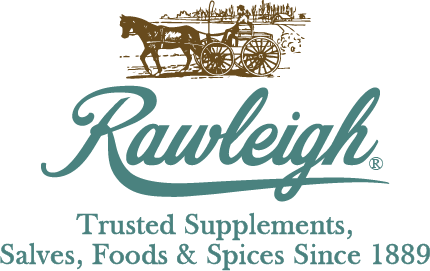Recent Studies re: Supplements and Cardiovascular Health - AstraZeneca
Having high blood pressure or elevated cholesterol levels lately? Such conditions increase your risk of developing heart disease in the future. This is where medication, regular exercise, and a healthy diet can improve cardiovascular health.
However, some people don't prefer medication due to their potential side effects. Many are now trying a heart care supplement to get their cardiovascular health back on track. But do supplements actually work? Read on to find out.
Recent Studies on Supplements & Cardiovascular Health
The role of supplements in maintaining cardiovascular health has been a subject of research and debate for a long time. Recently, the research teams at Cleveland Clinic compared the effectiveness of statins to supplements in a clinical trial.
Statins refer to the group of medicines that help reduce LDL (low-density lipoprotein) cholesterol in the blood. LDL is the bad cholesterol produced in the liver that goes out into the blood. Sponsored by AstraZeneca but carried out independently by the researchers, this study was based on 190 adults aged 40 to 70.
Some participants were given a 5 mg daily dose of rosuvastatin for 28 days, while others were given six different supplements for the same period. The results showed that rosuvastatin was more effective than placebos or supplements in lowering LDL cholesterol. This study was published in the Journal of the American College of Cardiology.
But does this mean supplements don’t have any benefits at all? Find out the answer to this question in the next section.
The Role of Dietary Supplements for Cardiovascular Support
A heart care supplement doesn't provide you with any guarantee against heart disease. A supplement alone can’t offer complete cardiovascular or joint support. However, it may help your body lower the risk factors for heart disease to a certain extent and benefit your overall health too.
Here are some essential points about how a heart care supplement works.
Use Them in Conjunction with a Healthy Lifestyle
You shouldn't rely solely on supplements to support your cardiovascular health. According to Gina Sirchio-Lotus (a doctor of chiropractic, certified clinical nutritionist, a functional medicine physician, and the owner of LG Institute of Health in Chicago), supplements are best used as a part of an overall health plan that involves a healthy diet, good sleeping habits, and regular exercise.
Note: Remember that supplements can never be a substitute for a healthy diet.
Check Out the Micronutrients They Contain
Before consuming a heart care supplement, it is highly essential to check what micronutrients it consists of. Not all micronutrients in heart care or a cholesterol reduction supplement are effective or safe. You can talk to a nutritionist or a doctor to identify an optimal mixture of micronutrients for your heart and ensure none of them has a harmful effect on you.
Follow the Recommended Dosage
As with medication, moderation is the key when taking supplements to support your heart or overall health. It means you should follow the dosage recommendations by the manufacturer, usually printed on the label. Taking too many supplements can have multiple adverse effects on your heart and body, so be careful how much and how frequently you intake them.
Avoid Combining Different Supplements, and Other Medicines
Supplements may interfere with each other or the prescription medications you take, causing chemical reactions that can be minor or dangerous. They can make your medicines less potent or more powerful. Plus, they can cause even more changes to your body when combined with different foods and drinks. Hence, you should consider talking to a doctor if you are already taking or planning to take some other supplement or prescribed medicine.
Omega-3 Fatty Acids: An Effective Ingredient for Cardiovascular Health
Omega-3 fatty acids are healthy fats that can support your heart health. A few studies have shown that some form of Omega-3 fatty acid can reduce the triglyceride levels in your body. Triglyceride is the fat (lipid) in the blood that provides energy but harms your heart if found in excess.
Omega-3 fatty acids may also reduce blood pressure and inflammation, mitigating the risk of heart disease and stroke. The three main omega-3 fatty acids are alpha-linolenic acid (ALA), eicosapentaenoic acid (EPA), and docosahexaenoic acid (DHA). ALA is found in plant oils, like flaxseed, canola oil, and soy, while DHA and EPA are found in fish and other seafood.
According to Abe Malkin - MD, a board-certified family medicine physician and founder of Concierge MD in Los Angeles, California, –a heart care supplement containing Omega-3 fatty acids may increase HDL (good) cholesterol levels while breaking the plaque buildup in the arteries.
Antioxidant Properties of a Heart Care Supplement
Supplements with antioxidant properties are thought to play a role in heart health. Their nutrients may reduce so-called 'oxidative stress,' one of the key reasons for many cardiovascular issues. However, the nutrients in antioxidant supplements are not a match for those in antioxidant-rich foods.
Previous studies on micronutrient supplementation have mainly focused on the health effects of a single or a few vitamins or minerals at a time. But recently, a few researchers have taken a detailed and systematic approach to evaluate all the publically available studies on various micronutrients and their impact on cardiovascular risk factors and diseases.
Based on a meta-analysis published in the Journal of the American College of Cardiology, some supplements work better than others in lowering the risk of heart disease. You should consult a physician before using any supplement and make sure you know how to use it safely.
Natural Heart Care Supplements by WT Rawleigh
OC-MAX | Plant Sterol-Based, Cholesterol Control Supplement
Plant sterols are substances similar to cholesterol but produced in plants - found in the highest amounts in vegetable oil, seeds, and nuts. Supplements containing plant sterols can be used to lower cholesterol levels, reducing the risk of heart disease.
WT Rawleigh brings you a high-quality, plant sterol-based heart care supplement named OC-Max. It contains 800 mg of plant sterol per caplet. You can take a caplet twice each day, preferably with a meal.
Krill Oil-Based Supplement for Cardiovascular Support
Krill is a tiny crustacean shellfish, a marine animal similar to a shrimp. It contains a high amount of Omega-3 fatty acids; eicosapentaenoic acid (EPA) and docosahexaenoic acid (DHA).
Since our bodies may not produce enough of their own omega-3 fatty acids, we can compensate through foods and supplements. These acids may lower triglycerides in our blood and prevent it from clotting easily. Superba Red Krill Oil by WT Rawleigh comes in a bottle of 60 soft gels, each softgel containing 500 mg of Krill oil. You can take one softgel twice daily, preferably with a meal or as directed by a physician.
* These statements have not been evaluated by the Food and Drug Administration. This product is not intended to diagnose, treat, cure or prevent any disease. It is recommended that a physician be consulted before taking any supplements. Results are not typical and may vary.

